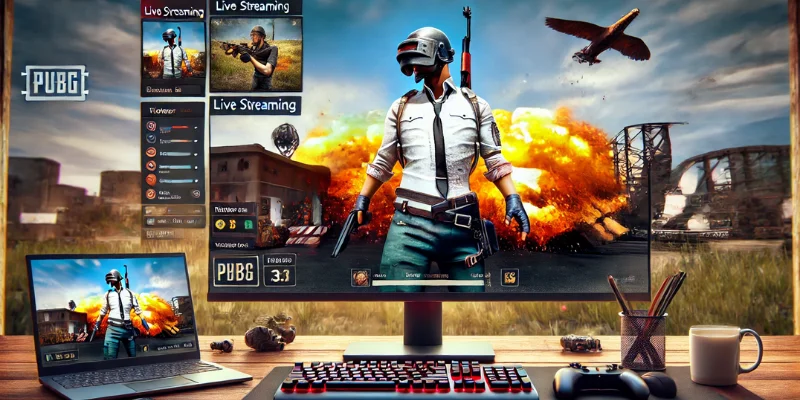
Economic Contributions of Esports in the Philippines
As an experienced professional esports player in the Philippines, I’ve witnessed how our passion for gaming has transformed into a thriving industry. The rise of esports has gone beyond just competitions—it’s now a powerful economic driver. From creating revenue streams to boosting the local gaming market, esports is making a significant impact on the country’s economy.
In this article, I’ll share insights into how esports contributes to the economy, focusing on revenue from tournaments, sponsorships, and advertisements as well as the growth of the local gaming market.
Revenue Streams from Esports: A Multi-Billion Peso Industry
The esports industry in the Philippines has become a massive revenue generator, fueled by various income streams.
a. Esports Tournaments: A Platform for Big Earnings
- Tournaments are at the heart of esports revenue, offering substantial prize pools and drawing large audiences.
- Events like the Mobile Legends: Bang Bang Professional League (MPL) and The Nationals attract local and international sponsors.
- These tournaments also sell tickets for live events, creating additional income.
b. Sponsorships: The Lifeline of Esports Teams
- Sponsorships are a primary source of income for esports teams and players.
- Brands like Smart Communications and Globe Telecom sponsor teams to increase their visibility among young audiences.
- Sponsorship deals often include funding for training facilities, team salaries, and marketing campaigns.
c. Advertisements: Leveraging Online Platforms
- Streaming online slot platforms such as YouTube Gaming, Facebook Gaming, Pussy888, and Twitch generate ad revenue for esports events.
- Ads during live streams and match replays are a significant revenue source for tournament organizers.
- Some players also earn through personal brand endorsements displayed on their streaming channels.
d. Merchandise Sales: Capitalizing on Fan Loyalty
- Teams and organizations sell branded merchandise like jerseys, caps, and posters.
- Merchandise sales generate additional income while strengthening team loyalty among fans.
- Limited-edition items and collaborations with local designers further boost revenue.
Growth of the Local Gaming Market in the Philippines
Esports has spurred remarkable growth in the Philippine gaming market, influencing various sectors.
a. Increased Demand for Gaming Equipment
- The rise of esports has fueled demand for high-performance gaming peripherals like keyboards, headsets, and monitors.
- Local retailers and tech companies are thriving, thanks to partnerships with international brands.
b. Growth of Game Developers and Publishers
- The Philippines is becoming a hub for game development, with companies like Anino Games creating titles tailored for Filipino audiences.
- Partnerships between developers and esports organizations drive innovation and local content creation.
c. Expansion of Gaming Cafes and Hubs
- Gaming cafes are evolving into esports training hubs equipped with top-notch hardware.
- These venues serve as community centers, fostering collaboration among players and attracting casual gamers.
d. Mobile Gaming Boom
- Mobile games like Mobile Legends and Call of Duty: Mobile dominate the local market.
- The affordability of smartphones has made gaming accessible to millions, further driving market growth.
Esports Tournaments: Economic Impact Beyond Gaming
Major esports tournaments don’t just generate revenue—they create economic ripples across multiple industries.
a. Boosting Tourism Through Live Events
- International tournaments like the SEA Games Esports Division attract visitors from around the globe.
- This influx of tourists benefits hotels, restaurants, and transportation providers.
b. Creating Jobs in Event Management
- Esports tournaments require large teams of event organizers, tech specialists, and stage designers.
- These jobs provide opportunities for skilled professionals in both gaming and non-gaming fields.
c. Licensing and Broadcast Rights
- Tournament organizers earn additional income by selling broadcasting rights to streaming platforms.
- Exclusive deals with networks and platforms drive significant revenue for the industry.
Corporate Sponsorship in Economic Growth
Corporate sponsorship is a cornerstone of the esports economy, providing resources to players, teams, and events.
a. Long-Term Sponsorship Deals
- Companies like Monster Energy and Razer sponsor esports teams, providing equipment, training spaces, and financial support.
- These partnerships often include performance bonuses, incentivizing players to excel.
b. Sponsorship Activations During Events
- Sponsors set up booths, contests, and activities during live tournaments to engage attendees.
- These activations generate additional income while building brand loyalty among fans.
c. Grassroots Initiatives by Sponsors
- Corporations also fund grassroots programs, helping amateur players transition into professional esports similar to Pragmatic Play Malaysia.
- These programs build the foundation for long-term industry growth.
 Digital Platforms: The Revenue Backbone of TF Gaming
Digital Platforms: The Revenue Backbone of TF Gaming
The digital transformation of esports has created robust revenue opportunities for platforms and players.
a. Subscription Models for Exclusive Content
- Platforms like Twitch allow fans to subscribe to their favorite players’ channels for exclusive perks.
- Subscription fees directly support content creators while generating platform revenue.
b. Revenue from Virtual Goods
- Many games offer in-game purchases like skins and characters, which contribute to revenue streams.
- Esports events promote these purchases by featuring them in competitions.
c. Crowdfunding for Prize Pools
- Some tournaments use crowdfunding to increase prize pools, with fans contributing through ticket sales or donations.
- This model strengthens the connection between players and their audience.
Local Economy Benefits from Gaming Growth
The growth of esports impacts the economy beyond gaming, fostering development in various sectors.
a. Increased Employment Opportunities
- The industry has created jobs in tech development, marketing, and event management.
- Content creators, graphic designers, and stream moderators also benefit from this ecosystem.
b. Education and Skill Development
- Esports-focused courses and boot camps teach players teamwork, strategy, and critical thinking.
- These skills are transferable to other industries, creating a more skilled workforce.
c. Growth of Secondary Industries
- Industries like logistics, food delivery, and retail benefit from increased gaming activity.
- For example, delivery services experience higher demand during major esports events.
Challenges in Maintaining Economic Growth
While esports is thriving, sustaining its economic contributions requires addressing certain challenges.
a. Regulatory Framework
- Clear regulations are needed to govern sponsorships, advertising, and player contracts.
- This ensures fair treatment for players and teams while protecting sponsors’ investments.
b. Career Longevity for Players
- Many players face short careers due to burnout and a lack of post-gaming career opportunities.
- Developing player support systems and career transition programs is vital.
c. Infrastructure Investment
- Continued growth relies on expanding internet infrastructure, especially in rural areas.
- High-speed internet is essential for both players and fans to access online platforms.
Economic Growth in TF Gaming and Esports
The future of TF Gaming Professional Economic Growth looks bright, with several key trends emerging.
a. Integration with Education
- Schools and universities are incorporating esports into their curricula, preparing students for careers in the industry.
b. Increased Government Support
- More government initiatives, such as funding for esports events, are expected to boost industry growth.
c. Expansion into International Markets
- Filipino esports teams are gaining recognition globally, opening up new revenue opportunities.
d. Advancements in VR and AR Gaming
- Technologies like virtual reality (VR) and augmented reality (AR) will revolutionize the esports experience.
Job Creation Through TF Gaming and Esports
I’ve seen how TF Gaming and esports have transformed the job market. What was once a hobby is now a career pathway for thousands of individuals. The rapid growth of the industry has created numerous opportunities, ranging from professional players and coaches to analysts, event organizers, and digital content creators.
Esports is no longer just about playing video games. It has evolved into a global phenomenon that supports a wide range of careers.
a. Professional Players: The Face of Esports
- Pro players are the stars of esports, competing in tournaments for massive prize pools.
- Their careers require dedication, skill, and continuous training to stay ahead of the competition.
- Top Filipino players, like Kuku from Dota 2, have made their mark on the global stage.
b. Coaches: Mentors for Competitive Teams
- Coaches are crucial for guiding teams through strategies and improving performance.
- They analyze opponents, design playbooks, and ensure players stay motivated during competitions.
- Coaching careers often begin as players transition into leadership roles.
c. Analysts: The Data Experts
- Analysts play a vital role by studying gameplay statistics and identifying patterns.
- Their insights help teams refine their strategies and exploit opponents’ weaknesses.
- Many analysts also create public reports for fans, building their own brand within the community.
d. Event Organizers: Orchestrating the Action
- Esports tournaments require professional event organizers to manage logistics, schedules, and production.
- These roles demand expertise in live streaming, stage design, and audience engagement.
- Successful events, like MPL Philippines, rely on seamless coordination to attract sponsors and fans.
Digital Content Creation in Job Growth
Beyond competitive gaming, esports has fueled the rise of digital content creation as a viable career.
a. Streamers: Building Personal Brands
- Streaming platforms like Twitch and YouTube allow players to monetize their gameplay through ads and subscriptions.
- Filipino streamers like Alodia Gosiengfiao have turned their channels into lucrative businesses.
b. Gaming Influencers
- Influencers collaborate with brands to promote products and services to their followers.
- They earn through sponsorships, affiliate marketing, and exclusive partnerships with gaming companies.
c. Video Editors for Esports Content
- Video editors craft highlights, tutorials, and promotional content for teams and organizations.
- Their work drives engagement on social media platforms, increasing the visibility of esports events.
d. Social Media Managers
- Social media managers handle the online presence of teams, players, and events.
- They create and schedule posts, engage with fans, and track performance metrics.
Emerging Roles in TF Gaming and Esports
As the industry grows, new roles are emerging to meet its evolving demands.
a. Talent Scouts
- Scouts identify up-and-coming players and connect them with professional teams.
- They monitor amateur tournaments and social media to discover hidden talent.
b. Esports Psychologists
- Psychologists work with teams to address stress, improve focus, and build team cohesion.
- Their role is becoming increasingly important in high-stakes tournaments.
c. Technical Specialists
- These professionals ensure that streaming equipment, servers, and software run smoothly during events.
- They troubleshoot issues in real time, ensuring a seamless experience for players and viewers.
d. Merchandise Designers
- Designers create jerseys, caps, and other branded items for teams and tournaments.
- Their work strengthens fan loyalty and generates additional revenue.
Opportunities in Digital Marketing for TF Gaming and Esports
Digital marketing has become an integral part of promoting esports events, teams, and players.
a. Performance Marketing Specialists
- These specialists use data-driven strategies to optimize ads and boost ticket sales for tournaments.
- They focus on key metrics like click-through rates and conversion rates to maximize ROI.
b. Content Strategists
- Content strategists plan and execute campaigns that showcase the unique value of teams and events.
- Their work involves blogs, social media posts, and video content to engage audiences.
c. SEO Experts for Gaming Websites
- SEO professionals ensure that esports-related websites rank high on search engines.
- Their expertise drives organic traffic, increasing exposure for sponsors and events.
d. Affiliate Marketers
- Affiliate marketers promote esports products, such as gaming gear, through customized referral links.
- They earn commissions on sales, creating a performance-based revenue model.
The Economic Impact of Job Creation in TF Gaming and Esports
The job opportunities created by TF Gaming Professional Philippines and esports contribute significantly to the Philippine economy.
a. Reducing Unemployment
- Esports provides jobs for individuals with diverse skill sets, from tech-savvy professionals to creative artists.
- The industry offers career paths for youth who may struggle to find traditional employment.
b. Promoting Entrepreneurship
- Many players and influencers have launched their own brands, creating opportunities for freelancers.
- Small businesses, such as gaming cafes, also benefit from increased esports activity.
c. Fostering Regional Development
- Esports hubs and tournaments bring economic activity to areas outside Metro Manila.
- This decentralization promotes growth in rural and provincial regions.
d. Empowering the Next Generation
- Esports inspires young Filipinos to pursue careers in technology, digital media, and gaming.
- It fosters innovation and a competitive spirit that benefits the broader economy.
Training and Education for Esports Careers
As esports becomes more professionalized, training programs and courses are emerging to prepare individuals for industry roles.
a. Esports Academies
- Dedicated academies train aspiring players, coaches, and analysts in the technical aspects of the game.
- These institutions often partner with professional teams to offer mentorship opportunities.
b. University Programs
- Several universities now offer esports-related courses covering management, marketing, and game design.
- These programs prepare students for the diverse career paths available in the industry.
c. Online Certification Courses
- Platforms like Udemy and Coursera provide certifications in digital marketing, video editing, and data analysis.
- These skills are highly relevant to esports careers, enabling individuals to stand out in the job market similar to Live Poker.
 TF Gaming Challenges in Sustaining Job Growth
TF Gaming Challenges in Sustaining Job Growth
While the industry is thriving, sustaining its momentum requires overcoming several challenges.
a. Lack of Standardization
- The absence of standardized contracts and salaries can lead to exploitation of players and staff.
- Industry-wide guidelines are needed to protect workers’ rights.
b. Limited Career Longevity for Players
- Professional players often face short careers due to burnout or declining performance.
- More opportunities in coaching, analysis, and content creation can address this issue.
c. Accessibility Barriers
- High costs of equipment and training can exclude talented individuals from participating in esports.
- Sponsorship programs and scholarships can help level the playing field.
d. Gender Diversity
- Women are underrepresented in professional esports and related careers.
- Initiatives promoting diversity and inclusion are essential for industry growth.
Esports Infrastructure Development in the Philippines
I’ve witnessed the transformative growth of esports infrastructure in the country. This evolution has been pivotal in fostering the TF Gaming professional economic growth, offering players the tools and spaces to thrive competitively. From esports arenas and gaming hubs to investments in cutting-edge facilities, infrastructure development has cemented the Philippines’ position as a rising star in the global esports scene.
a. A Space for Competitive Gaming
- Infrastructure provides professional-grade setups for players to practice and compete.
- Well-equipped venues foster professionalism and encourage player development.
b. Community Hubs for Gamers
- Gaming hubs and internet cafes create gathering spaces for casual and competitive players.
- These venues contribute to a sense of community, promoting collaboration and shared passion.
c. Supporting Large-Scale Events
- Esports arenas host tournaments that attract audiences and showcase the country’s gaming talent.
- These events boost the local economy through ticket sales, merchandise, and tourism.
Growth of Esports Arenas in the Philippines
The rise of dedicated esports arenas has been instrumental in professionalizing the gaming industry.
a. State-of-the-Art Facilities
- Arenas like SM Mall of Asia’s Music Hall and Ayala Malls Circuit’s Globe Esports Center are equipped with high-tech gaming setups.
- These venues feature LED screens, ergonomic gaming chairs, and high-speed internet to support competitive matches.
b. Regional Expansion of Arenas
- Esports arenas are no longer limited to Metro Manila; provincial cities like Cebu and Davao are catching up.
- This regional expansion decentralizes esports, providing access to players across the country.
c. Multi-Purpose Venues
- Modern arenas cater to a variety of events, including tournaments, training camps, and fan meet-and-greets.
- This versatility maximizes the utility and profitability of these venues.
d. Economic Impact of Esports Arenas
- Large-scale arenas generate income through ticket sales, advertising, and food concessions.
- They also create jobs for technical staff, event organizers, and support crews.
The Evolution of TF Gaming Hubs
TF Gaming hubs have grown from simple internet cafes to highly specialized facilities that cater to esports enthusiasts.
a. From Internet Cafes to Esports Hubs
- Internet cafes were the original hubs for Filipino gamers.
- Now, dedicated esports hubs offer high-performance PCs, exclusive memberships, and curated gaming experiences.
b. Premium Membership Models
- Hubs like TNC Cyber Cafe and Game Over Lounge offer membership programs with benefits like discounted rates and priority bookings.
- These models encourage player loyalty and consistent revenue streams.
c. Training Centers for Aspiring Players
- Many hubs now serve as training grounds for amateur teams aiming to go professional.
- They host scrimmages, provide coaching services, and connect players with scouts.
d. Accessibility and Inclusivity
- Hubs cater to a diverse audience, offering options for casual gamers and competitive players alike.
- Their affordability ensures gaming remains accessible to a broader demographic.
Internet Cafes: The Roots of Filipino Esports
a. Cultural Significance of Internet Cafes
- Internet cafes were instrumental in the early growth of esports in the Philippines.
- They provided affordable access to high-quality gaming setups, even in low-income areas.
b. Modernizing the Internet Cafe Experience
- Today’s internet cafes feature faster internet speeds, high-end gaming rigs, and ergonomic furniture.
- Upgraded setups attract more serious gamers and foster long gaming sessions.
c. Hosting Grassroots Tournaments
- Internet cafes frequently organize local tournaments, nurturing young talent.
- These events often serve as stepping stones for players aspiring to join larger leagues.
d. Contribution to Local Economies
- Internet cafes create jobs for technicians, cashiers, and cafe managers.
- They also drive foot traffic to nearby businesses, boosting local commerce.
Impact of Investments in Gaming Facilities
Investments in gaming facilities have had a profound effect on both the esports industry and the broader economy.
a. Attracting Global Events
- High-quality facilities enable the Philippines to host international esports tournaments.
- Events like the Southeast Asia Games Esports Division attract tourists and global media attention.
b. Building a Talent Pipeline
- Investments in training facilities and gaming hubs help cultivate the next generation of esports talent.
- Players benefit from access to cutting-edge equipment and coaching.
c. Boosting Real Estate and Urban Development
- Esports arenas and hubs contribute to urban renewal, particularly in underdeveloped areas.
- These facilities often anchor mixed-use developments, combining gaming with retail and dining.
d. Supporting Technological Advancements
- Investments drive the adoption of innovations like VR gaming, AI analytics, and high-speed networking.
- This pushes the Philippines to the forefront of global gaming technology.
Esports Infrastructure Development
Despite its growth, esports infrastructure in the Philippines faces challenges that must be addressed.
a. Uneven Regional Development
- Metro Manila dominates esports infrastructure, leaving rural areas underserved.
- Expanding facilities to provinces is essential for inclusivity and balanced growth.
b. High Capital Requirements
- Building arenas and hubs requires significant investment, which can be a barrier for smaller operators.
- Public-private partnerships can help bridge funding gaps.
c. Maintenance and Sustainability
- Ensuring long-term sustainability of facilities requires regular maintenance and updates.
- Operators must balance costs with revenue to remain profitable.
d. Navigating Regulatory Hurdles
- Local governments may impose strict regulations on gaming hubs and esports arenas.
- Clear and consistent policies are needed to encourage investment.
 Future Trends in TF Gaming Esports Infrastructure
Future Trends in TF Gaming Esports Infrastructure
The future of esports infrastructure in the Philippines looks promising, with several trends shaping its development.
a. Hybrid Facilities
- Multi-use venues that combine esports arenas with coworking spaces and cafes are gaining popularity.
b. Integration of Smart Technology
- Facilities are adopting smart tech, like IoT-enabled devices and AI analytics, to optimize operations.
c. Focus on Sustainability
- Eco-friendly designs and energy-efficient systems are becoming priorities for new facilities.
d. Expansion of Mobile Gaming Hubs
- With mobile gaming on the rise, hubs dedicated to mobile esports are expected to emerge.
Advances in Streaming Platforms: Connecting Players and Fans Globally
Streaming platforms are at the heart of esports, bridging the gap between players and fans. Their rapid evolution has redefined how content is shared and consumed.
a. High-Quality Live Streams
- Platforms like Twitch, YouTube Gaming, and Facebook Gaming now offer 4K resolution streaming.
- This ensures that viewers can experience esports matches with unparalleled clarity.
- Low-latency streaming minimizes delays, providing a near-real-time viewing experience.
b. Interactive Features for Viewer Engagement
- Platforms have integrated interactive features like live chat, polls, and donation systems.
- These tools allow fans to communicate with players and support them directly.
- Personalized content recommendations also keep viewers engaged for longer periods.
c. Multi-Stream Capabilities
- Esports tournaments often have multiple matches running simultaneously.
- Streaming platforms now offer multi-stream viewing, enabling fans to switch between matches seamlessly.
d. Monetization for Streamers and Teams
- Advanced monetization options, such as subscriptions, ad revenue, and exclusive content, support streamers financially.
- Esports organizations leverage these platforms to build revenue streams through sponsored streams and partnerships.
e. AI Integration for Content Discovery
- Artificial intelligence helps viewers discover esports events and channels tailored to their preferences.
- This innovation increases audience retention and expands the reach of esports content.
Innovations in Gaming Software: Enhancing Gameplay and Strategy
Esports has pushed game developers to create cutting-edge software that meets the demands of competitive gaming.
a. Improved Game Optimization
- Games like League of Legends and Valorant are designed to run smoothly on various hardware configurations.
- Optimization ensures that players experience consistent performance, even on mid-range systems.
b. Advanced AI Opponents
- AI in gaming software has evolved to simulate real player behavior.
- This provides pro players with high-quality training partners that adapt to their strategies.
c. Real-Time Analytics Tools
- Esports games now feature real-time analytics dashboards for players and coaches.
- Tools like heatmaps, damage stats, and movement tracking provide actionable insights.
d. Seamless Anti-Cheat Systems
- Competitive integrity is critical in esports.
- Developers have implemented robust anti-cheat systems to detect and prevent hacking or exploiting.
e. Enhanced Spectator Modes
- Spectator modes now include advanced camera controls and live statistical overlays.
- This allows casters and viewers to analyze gameplay in greater depth.
Hardware Breakthroughs: Powering Esports Performance
Hardware innovations play a crucial role in delivering the performance required for professional esports.
a. High-Performance Gaming Monitors
- Monitors with 240Hz refresh rates and 1ms response times provide players with a competitive edge.
- Brands like ASUS ROG and Alienware are leading this space.
b. Ergonomic Gaming Chairs and Peripherals
- Gaming chairs now feature customizable lumbar support and cooling systems to enhance player comfort.
- Peripherals like lightweight mice and mechanical keyboards offer precision and durability.
c. VR and AR Integration
- Virtual reality (VR) and augmented reality (AR) are being incorporated into competitive gaming.
- This creates immersive gameplay experiences and opens new genres for esports.
d. Cloud-Based Gaming PCs
- Cloud gaming PCs eliminate the need for high-end hardware, making esports more accessible.
- Players can stream games from remote servers with minimal latency.
e. Energy-Efficient Components
- Hardware manufacturers are focusing on energy efficiency to reduce environmental impact.
- This aligns with the growing push for sustainability in gaming technology.
 The Role of 5G in Revolutionizing TF Gaming Esports
The Role of 5G in Revolutionizing TF Gaming Esports
5G technology is a game-changer for esports, enabling faster and more reliable connectivity.
a. Ultra-Low Latency Gaming
- 5G networks drastically reduce latency, allowing for near-instant response times.
- This is especially critical for real-time strategy games and first-person shooters.
b. Enhanced Mobile Gaming Experiences
- Mobile esports, such as Mobile Legends and PUBG Mobile, benefit immensely from 5G.
- Players can enjoy lag-free gameplay even in competitive scenarios.
c. Seamless Streaming on the Go
- Players and fans can stream matches in high definition without buffering, even while traveling.
- This expands esports viewership to previously untapped markets.
d. Supporting Large-Scale Events
- 5G enables reliable connectivity for esports tournaments with thousands of attendees.
- This ensures smooth operations for live streams, player setups, and audience interactions.
e. Unlocking AR and VR Potential
- High-speed 5G connections make AR and VR gaming experiences more viable in esports.
- This paves the way for innovative formats and genres.
Cloud TF Gaming Professional Economic Growth
Cloud TF Gaming Professional Economic Growth is redefining how esports players and fans interact with games.
a. Eliminating Hardware Barriers
- Cloud gaming platforms like GeForce NOW and Xbox Cloud Gaming allow players to stream games.
- This removes the need for expensive gaming PCs or consoles.
b. Expanding Global Reach
- Cloud gaming enables players from regions with limited hardware access to participate in esports.
- This democratizes the competitive gaming landscape.
c. Always-On Gaming Experiences
- Players can seamlessly switch between devices, continuing their sessions wherever they go.
- This flexibility enhances player engagement and convenience.
d. Integration with Esports Tournaments
- Cloud gaming platforms are being used to host online tournaments with minimal technical issues.
- This ensures that matches run smoothly, regardless of participants’ hardware setups.
e. Reducing Costs for Organizations
- Esports organizations can save on hardware costs by adopting cloud-based solutions for training and competitions.
Technological Innovations for Esports Spectators
The spectator experience is as important as gameplay in esports, and technology is enhancing how fans engage with matches.
a. Immersive Viewing Options
- Technologies like 360-degree cameras and AR overlays create interactive viewing experiences.
- Fans can choose custom camera angles or access player perspectives.
b. Virtual Esports Arenas
- Platforms like VRChat host virtual arenas where fans can watch matches together.
- This replicates the excitement of live events in an online setting.
c. Real-Time Translations
- AI-powered translation tools provide subtitles and commentary in multiple languages.
- This increases accessibility for global audiences.
d. Enhanced Fan Engagement
- Interactive fan zones with mini-games and polls keep audiences entertained during matches.
- These features create deeper connections between fans and esports brands.
Sustainability Through Technology in Esports
With its rapid growth, esports is focusing on sustainable practices driven by technology.
a. Energy-Efficient Data Centers
- Esports organizations are adopting energy-efficient servers to reduce their carbon footprint.
b. Eco-Friendly Event Operations
- Smart technology minimizes waste and optimizes resource use during tournaments.
c. Recyclable Gaming Equipment
- Manufacturers are developing peripherals made from recycled materials to promote sustainability.
The Transformative Power of Esports for Filipino Youth
TF Gaming Professional Economic Growth is uniquely positioned to inspire and empower young people. It offers them a platform to build skills and pursue passions.
a. A Platform for Personal Growth
- Esports provides opportunities for self-expression, helping young players showcase their talents.
- It allows players to challenge themselves and gain confidence through competition.
b. A Pathway to Professional Careers
- Filipino youth are increasingly seeing esports as a legitimate career option.
- From professional players to content creators and event organizers, the industry offers diverse roles.
c. Building Community and Collaboration
- Online games connect players from all over the world, fostering friendships and cultural exchange.
- Gaming communities provide a sense of belonging and support for Filipino youth.
How TF Gaming Professional Economic Growth Builds Teamwork Skills
Teamwork is at the heart of most esports titles, making it an essential skill for players.
a. Communication in Team-Based Games
- Games like Dota 2 and Valorant require constant communication to coordinate strategies.
- Players learn to express themselves clearly and listen to teammates’ input.
b. Collaboration for Shared Goals
- Winning esports matches often depends on how well a team works together.
- Players learn to trust their teammates and adapt to different playstyles.
c. Resolving Conflicts Constructively
- Teams frequently face challenges such as differing opinions on strategy.
- Esports teaches players to handle conflicts calmly and find solutions collaboratively.
Developing Strategic Thinking Through Esports
Esports challenges players to think critically and make decisions under pressure.
a. Analyzing Opponents’ Strategies
- Players must study opponents’ gameplay to anticipate their moves and counter them effectively.
- This skill is invaluable in professional esports and real-world problem-solving.
b. Planning and Executing Tactics
- Strategy games like Starcraft II require players to develop complex plans and adapt them as needed.
- Young players learn to think ahead and consider multiple outcomes.
c. Time Management and Resource Allocation
- Many esports titles involve managing resources and prioritizing tasks within a time limit.
- This helps players develop decision-making skills applicable to various life scenarios.
 Enhancing Critical Thinking Through TF Gaming Esports
Enhancing Critical Thinking Through TF Gaming Esports
Critical thinking is a cornerstone of successful esports gameplay, and its benefits extend beyond the screen.
a. Quick Decision-Making
- Fast-paced games like Call of Duty demand split-second decisions that can change the course of a match.
- This hones players’ ability to evaluate situations rapidly and make informed choices.
b. Problem-Solving Under Pressure
- Competitive games often put players in high-pressure situations, requiring creative solutions.
- Youth learn to remain calm and think clearly, even in stressful environments.
c. Continuous Learning and Adaptation
- Esports involves constant updates, new strategies, and evolving gameplay mechanics.
- Players develop a growth mindset, embracing learning as part of their journey.
Encouraging Responsible Gaming Among Filipino Youth TF Gaming Professional Economic Growth
While esports has many benefits, it’s important to ensure that young players engage with it responsibly.
a. Setting Healthy Boundaries
- Parents and guardians should encourage a balanced approach to gaming.
- Establishing schedules for gaming, schoolwork, and physical activities promotes overall well-being.
b. Teaching Time Management
- Youth should learn to manage their time effectively, prioritizing academics and other responsibilities.
- Tools like gaming timers and productivity apps can help enforce these habits.
c. Promoting Positive Gaming Environments
- Toxicity in TF Gaming Professional Economic Growth can affect players’ mental health.
- Esports organizations and platforms should foster inclusive and respectful communities.
d. Educating About Gaming Addiction
- Awareness campaigns can help young players recognize the signs of unhealthy gaming habits.
- Early intervention ensures that gaming remains a positive influence in their lives.
How Esports Prepares Youth for the Workforce
Esports equips Filipino youth with transferable skills that prepare them for future careers.
a. Leadership Skills
- Team captains learn to motivate teammates, make decisions, and resolve conflicts.
b. Technological Proficiency
- Players become adept at using software, hardware, and digital communication tools.
c. Creativity and Innovation
- Content creation and strategy development foster creativity, a valuable trait in any career.
Fostering Inclusivity Through Esports
Esports offers opportunities for diverse groups of young people to shine.
a. Breaking Socioeconomic Barriers
- Affordable mobile gaming has made esports accessible to youth from all backgrounds.
b. Promoting Gender Equality
- Female gamers are gaining recognition in the competitive scene, inspiring more girls to participate.
c. Celebrating Cultural Diversity
- Esports brings players together from different regions, promoting unity and mutual respect.
Parental Involvement in Esports Development
Parents play an important role in guiding their children’s gaming journey.
a. Understanding Esports as a Career
- Parents should educate themselves about the opportunities esports offers.
b. Supporting Skill Development
- Encouraging participation in tournaments and training can help youth realize their potential.
c. Monitoring Online Interactions
- Keeping track of children’s gaming activities ensures they remain in safe and positive environments.
Conclusion: Esports as a Pillar of Economic Growth
As a TF Gaming professional, I’ve seen how esports has evolved into a major contributor to the Philippine economy. From creating revenue streams through tournaments and sponsorships to driving the growth of the local gaming market, esports is reshaping industries and creating opportunities.
I’ve witnessed how esports has created diverse career opportunities for Filipinos. From pro players and coaches to digital marketers and content creators, the industry offers something for everyone. Its impact on the economy is undeniable, providing jobs, fostering innovation, and inspiring the next generation.
By addressing challenges and embracing new trends, we can ensure that TF Gaming and esports continue to thrive as a vital contributor to economic growth in the Philippines.
Frequently Asked Questions (FAQs)
Q1: What are the main revenue streams in TF gaming and esports?
A: Tournaments, sponsorships, advertisements, and merchandise sales drive revenue in esports.
Q2: How does esports benefit the Philippine economy?
A: It creates jobs, boosts tourism, and drives growth in gaming-related industries.
Q3: What challenges does the esports industry face in sustaining growth?
A: Challenges include regulatory gaps, player burnout, and infrastructure limitations.
Q4: How are local businesses impacted by esports?
A: Local businesses benefit from increased demand for gaming equipment, merchandise, and services.
Q5: What does the future hold for TF gaming and esports in the Philippines?
A: Integration with education, global expansion, and VR advancements will shape the industry’s future.
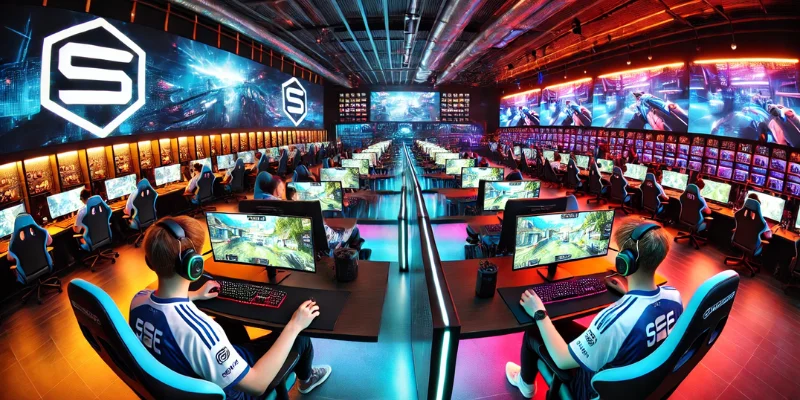 Digital Platforms: The Revenue Backbone of TF Gaming
Digital Platforms: The Revenue Backbone of TF Gaming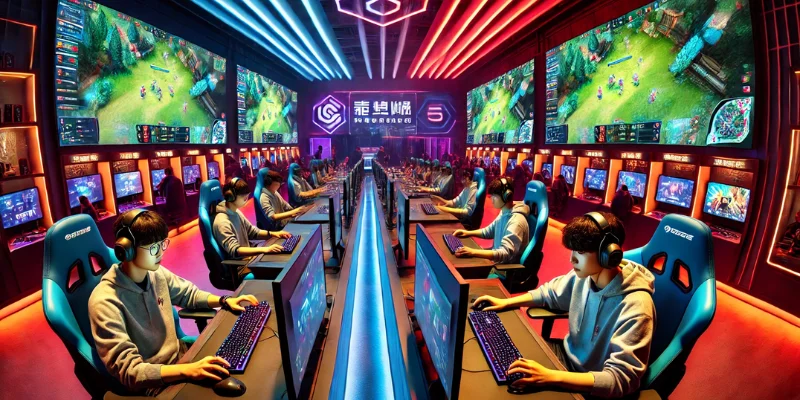 TF Gaming Challenges in Sustaining Job Growth
TF Gaming Challenges in Sustaining Job Growth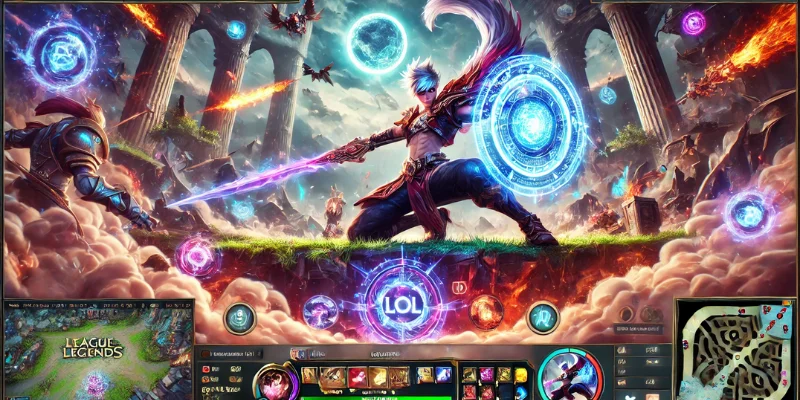 Future Trends in TF Gaming Esports Infrastructure
Future Trends in TF Gaming Esports Infrastructure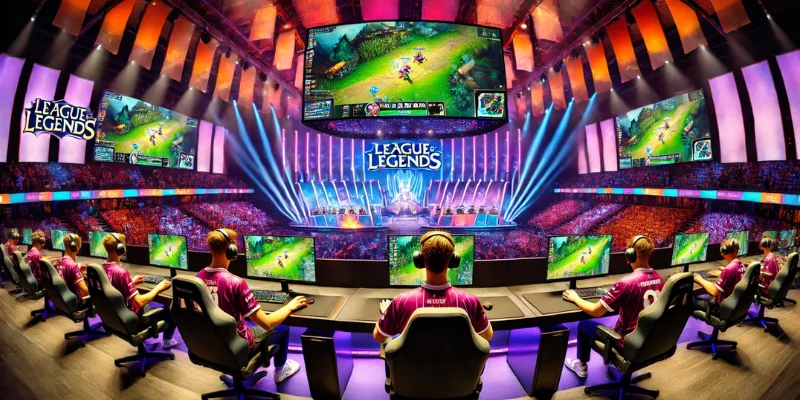 The Role of 5G in Revolutionizing TF Gaming Esports
The Role of 5G in Revolutionizing TF Gaming Esports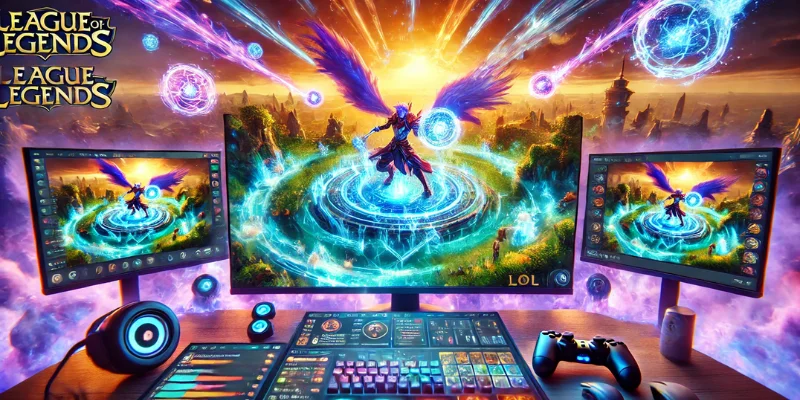 Enhancing Critical Thinking Through TF Gaming Esports
Enhancing Critical Thinking Through TF Gaming Esports